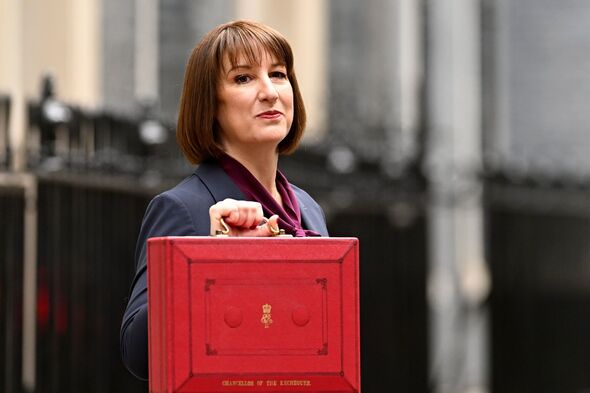
Grieving families in the UK face losing £34,000 each following a change to Inheritance Tax rules.
Chancellor Rachel Reeves on Wednesday announced that inherited pension pots will be subject to Inheritance Tax from April 2027.
The rule change was confirmed in the autumn Budget which saw Labour raise taxes by £40 billion in a bid to plug the “black hole” in public finances.
It means that pensions that are passed onto family members when somebody dies will be taxed similarly to other inherited assets in the future.
Under current rules, pensions are exempt from Inheritance Tax and are not assessed as part of a person’s estate value when they die. But Reeves has committed to closing this “loophole” from April 2027 to bring them under the Inheritance Tax regime.
Inheritance tax is a tax on the property, money and possessions of someone who has died above the threshold of £325,000, and is charged at 40%.
When the new law change takes effect, most estates will continue to have no inheritance tax liability, according to the government. Families normally have no tax to pay if the value of the estate is below the £325,000 threshold.
The government estimates that, out of around 213,000 estates with inheritable pension wealth in 2027 to 2028, a total of 10,500 estates – or around 1.5% of total UK deaths – will become liable to pay Inheritance Tax under the new rules.
Around 38,500 estates will pay more Inheritance Tax than previously would have been the case, with this group forecast to have an existing average Inheritance Tax liability of £169,000. This will increase by around £34,000 on average when pension assets are included in the value of the estate, the government says.
Reeves said: “Only 6% of estates will pay inheritance tax this year. I understand the strongly held desire to pass down savings to children and grandchildren. So I am taking a balanced approach in my package today.
“First, the previous government froze inheritance tax thresholds until 2028. I will extend that freeze for a further two years, until 2030. That means the first £325,000 of any estate can be inherited tax-free, rising to £500,000 if the estate includes a residence passed to direct descendants and £1m when a tax free allowance is passed to a surviving spouse or civil partner.
“Second, we will close the loophole created by the previous government made even bigger when the Lifetime Allowance was abolished by bringing inherited pensions into inheritance tax from April 2027.”
The policy has been slammed by critics who say it will lead to people using pensions as a tax planning vehicle to transfer wealth, rather than to fund retirement.
Helen Morrissey, head of retirement analysis at Hargreaves Lansdown, said more people will be “dragged into paying inheritance tax” because pensions are counted as part of their estate, adding that a “flurry of people” will revisit how they want to treat their finances in retirement, with more looking to gift more money to family while they are still alive.
















